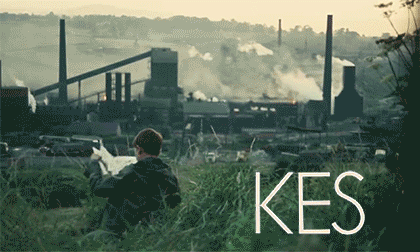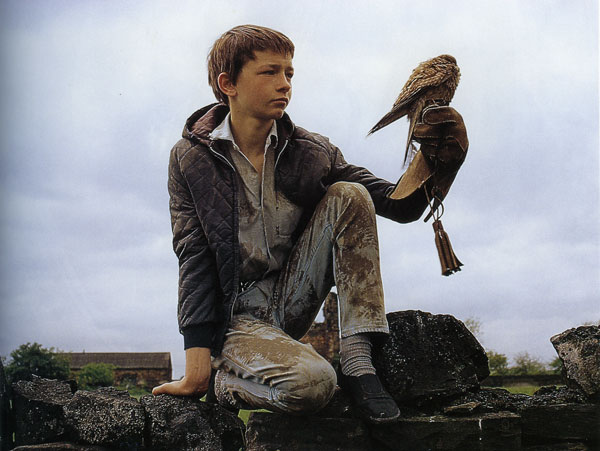Being alone isn’t lonely, for there no one
judges or attacks or ignores. It’s in the presence of those things that,
through rejection, bring isolation.
When Billy’s alone, the voices that tell him he’s bad are quieted enough that his own voice can say, “Maybe I am sometimes, but I’m not that bad.” No one else is going to defend him, so it might as well be he. It’s such a small, pitiful defense, wrought with self doubt and confusion that his belief in it is tenuous. To succeed in training a kestrel, strengthens that voice and to speak and be heard about that success validates him even more.
The director Ken Loach said, “This isn’t the way the world has to be. You don’t have to destroy all the Billy Caspers of your generation for the world to keep turning.”
Questions run through my head. What creates a despondent family or community? What can a film like this be a catalyst for? Am I the headmaster or the empathetic teacher, or somewhere in between? Am I encouraging others to have a voice? Do I have a voice? And so forth. Some movies I can watch and forget by the next day. Others are there for a lifetime--this is one of the latter.
Unrelated, but I was kind of fascinated with the school's architecture.
When Billy’s alone, the voices that tell him he’s bad are quieted enough that his own voice can say, “Maybe I am sometimes, but I’m not that bad.” No one else is going to defend him, so it might as well be he. It’s such a small, pitiful defense, wrought with self doubt and confusion that his belief in it is tenuous. To succeed in training a kestrel, strengthens that voice and to speak and be heard about that success validates him even more.
The director Ken Loach said, “This isn’t the way the world has to be. You don’t have to destroy all the Billy Caspers of your generation for the world to keep turning.”
Questions run through my head. What creates a despondent family or community? What can a film like this be a catalyst for? Am I the headmaster or the empathetic teacher, or somewhere in between? Am I encouraging others to have a voice? Do I have a voice? And so forth. Some movies I can watch and forget by the next day. Others are there for a lifetime--this is one of the latter.
Unrelated, but I was kind of fascinated with the school's architecture.




I just saw this a couple months ago. So powerful and sad! Much like The 400 Blows, but I like this better. That was my first Ken Loach. I'll have to watch more.
ReplyDeleteOh! I liked this better than 400 Blows too!
ReplyDeleteCan we say that out loud? :)
I hope so.
ReplyDeleteIt's too late, anyway. We said it.